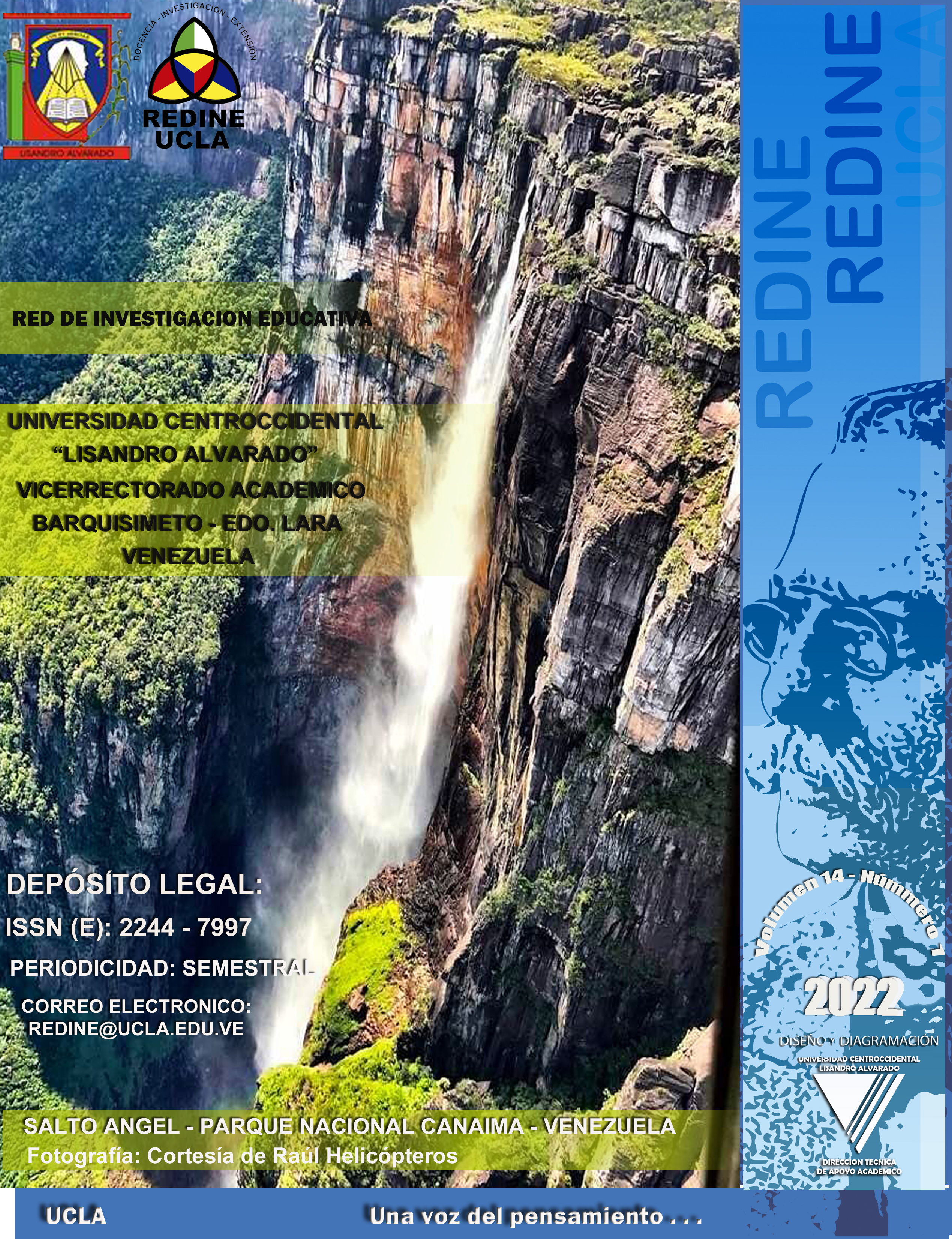Significant reflective processes of the teaching professional in times of pandemic
Keywords:
reflective processes, teaching professional, identity restructuringAbstract
The purpose of this research was to carry out an introspective process where the observation, conscious deliberation and epistemic accompaniment of authors versed in the art of pedagogy would meet to highlight the aspects that lead the teacher to manage reflective processes as part of the construction of significant precepts of their pedagogical practice; That is why it was taken as a fundamental element of information, a phenomenon that generated the massive need to transform human reality throughout the world; we talk about the COVID-19 pandemic; Therefore, to give substance to this essay, the beginning was detailing the importance of estimating the intrinsic and extrinsic processes that originate from everyday life since, during pedagogical practice, the teacher is sensitive to significant changes in professional behavior due to the social interaction, of physiological, psychological, social factors and finally by the accumulation of experience in the profession and in itself allow him to resignify through reflective processes his conception of the profession; secondly, it is reported how these influences affect the psyche of the teacher and then lead him to manage identity restructuring processes to be able to solve the needs of the community he serves, on the other hand, the challenges that Teachers face at this time because of the pandemic that is affecting the whole world and the little preparation to face it and finally the value of the teacher is recognized, who turns out to be able to adapt their pedagogical practice and adapt it in adverse situations.
Downloads
References
Coyaso, Alvarado y otros (2011). Departamento de Psicología, Universidad Autónoma de Aguascalientes. fjruval@correo.uaa.mx2 Facultad de Psicología,
Universidad de Colima, México
Dubar, Claude (2002). La crisis de las identidades: la interpretación de una mutación. Barcelona: Bellaterra.
Erikson Erik. (1968). Identidad: Juventud y crisis
(Identity, youth, and crisis) New York: W.W. Norton Company.
Fernández, M. (2006). Desarrollo profesional docente. Granada: Grupo Editorial Universitario Granada España.
Freud, S. (1981). Psychologie des foules et analyse du moi. Nouvelle traductions Schwartz.
Gee, J. (2000). Identity as an analytic lens for research in education. Review of research in education (Vol. 25) Revista Conciencia. Ecuador.
Grupo Banco Mundial (2020). COVID-19. Impacto en la educación y respuestas de política pública, informe anual.
Gurdián A. (2007). El paradigma cualitativo en la investigación socio-educativa Noveduc.
Guzmán E. (2017). Evolución de la identidad profesional de un docente novel de educación física: a partir de la reflexión de sus experiencias personales y de su propia práctica. Presentada para optar al grado de Doctor por la Universidad de Valladolid España.
Gysling Jacqueline. (1992). La formación del profesorado en Chile 1842-1987. Ediciones La Guardia. Santiago Chile.
Hargreaves, A. (2003). Teaching in the knowledge society. Maidenhead: Open University Press.
Knowles, G. (2004). Modelos para la comprensión de las biografías del profesorado en formación y en sus primeros años de docencia: ilustración a partir de estudios de caso. In I. F. Goodson.
Lovón & Cisneros (2020). Repercusiones de las clases virtuales en los estudiantes universitarios en el contexto de la cuarentena por COVID-19: El caso de la PUCP Universidad Peruana de Ciencias Aplicadas, Lima, Perú; Pontificia Universidad Católica del Perú, Lima, Perú.
Marchesi y Díaz (1990). Las emociones y los valores del profesorado editoriales La mancha Madrid España.
Mendiola, M. (2020). Retos educativos durante la pandemia de COVID-19:
una encuesta a profesores de la UNAM. Revista Digital Universitaria,
Aheadofprint, (2020), 1-23.
https://www.revista.unam.mx/wp-content/uploads/AOP.pdf
Montoya M. (2012). Identidad y formación docente en la Universidad Intercontinental.
Facultad de Filosofía y Letras Instituto de Investigaciones
sobre la Universidad y la Educación
División de Estudios de Posgrado
.
Pérez E. (2016). Educar en tiempos de crisis ponencia centro de formación de fe y alegría Maracaibo Venezuela. Documento en
línea http://ve.scielo.org/scielo.php?script=sci_arttext&pid=S1316-00872010000200008&lng=es&tlng=es Consultado 2019, Junio 28.
Sayago (2008). La metodología de los estudios críticos del discurso de problemas, posibilidades y desafíos UNPSJB /
UNPA Argentina.
Silva J. (2020). Articulo en línea https://www.elmostrador.cl
/cultura/2020/03/30/educacion-a-distancia-
para-millones-en-plena-crisis-sanitaria
-expertos-advierten-que-no-estamos-preparad0s/
Tarabini, A. (2020). ¿Para qué sirve la escuela? Reflexiones sociológicas en tiempos de pandemia global. Revista de Sociología de la Educación-RASE,
(2), 145-155. https://doi.org/10.7203/RASE.13.2.17135
Published
How to Cite
Issue
Section

This work is licensed under a Creative Commons Attribution-NonCommercial-ShareAlike 4.0 International License.
Derechos del/de autor/es a partir del año de publicación
Esta obra está bajo la licencia:
Creative Commons Reconocimiento-NoComercial-CompartirIgual 4.0 Internacional (CC BY-NC-SA 4.0)
Las opiniones expresadas por los autores no necesariamente reflejan la postura del editor de la publicación ni de la UCLA. Se autoriza la reproducción total o parcial de los textos aquí publicados, siempre y cuando se cite la fuente completa y la dirección electrónica de esta revista. Los autores(as) tienen el derecho de utilizar sus artículos para cualquier propósito siempre y cuando se realice sin fines de lucro. Los autores(as) pueden publicar en internet o cualquier otro medio la versión final aprobada de su trabajo, luego que esta ha sido publicada en esta revista.




